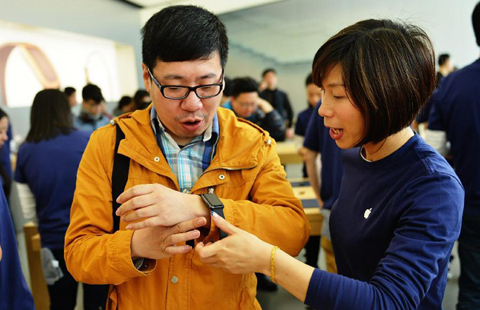

China's age-old remedies could help the West develop tomorrow's new drugs, thanks to a database released last month.
The Chem-TCM is the most comprehensive database of its kind and translates more than 12,000 chemicals from more than 300 Chinese herbs used in traditional Chinese medicine (TCM) into Western terminology.
"Future researchers will now be able to better understand the chemical basis of remedies that have been in use for thousands of years," says David Barlow of King's College London (KCL), who has helped to develop the database.
TCM chemicals are rarely used as raw materials to develop Western drugs because their complex nature makes the registration process difficult.
The database may also answer one of TCM's regulatory challenges in the United Kingdom. An EU directive came into effect in the UK this May that makes it illegal for individual practitioners to sell TCM over the counter, except for varieties registered with the UK drug safety watchdog, the Medicines and Healthcare Products Agency.
TCMs to be registered as herbal products in the UK must be shown to have been in use for at least 15 years in the EU, which proves challenging for TCMs that have recently entered the UK market.
The alternative is for TCMs to enter the EU as pharmaceutical products.
To bypass this technical difficulty while taking advantage of TCMs' thousands of years of wisdom, the database would identify Western chemicals with similar biological activities to TCM chemicals that have a good track record in curing specific symptoms.
Already recognized by Western regulatory bodies, these Western chemicals can then be built into pharmaceutical products as lead compounds.
"Traditional Chinese medicine has undergone a remarkable renaissance in recent years," Barlow says.
"However, the unique language used to describe categories of medicines has hindered effective understanding of one of the most developed and mature systems of alternative medicine in existence."
Professor Peter Hylands, another KCL researcher for the database, hopes new information made available would make this process easier.
"Pharmaceutical products entering the UK need to undergo stringent safety, quality and efficacy studies, which are very challenging unless the regulators can learn about TCM ingredients in terminologies already familiar to them," Hylands says.
Michael McIntyre, chairman of the European Herbal & Traditional Medicine Practitioners Association, says the development of TCMs into pharmaceutical products is not a practical solution to TCMs' regulation challenges in the EU.
"Statutory regulation of TCM practitioners is a low-cost, low-tech and timely way to enquire the safety of TCM medicines in the UK," McIntyre says.
Britain's health secretary Andrew Lansley approved a plan earlier this year for the Health Professions Council to establish a register of practitioners supplying herbal medicines not registered with the HMRA. But it's uncertain when this process will finish.
McIntyre puts it this way: "It's a great thing to know as much about herbal medicines as possible from a pharmaceutical point of view. But we must be careful to preserve the skills of TCM practitioners. Treating herbal medicines as pharmaceutical chemicals could risk losing sight of a great tradition."
KCL has 100 percent ownership of the database's intellectual property rights and licensed the database to TimTec, a company that has commercialized the database.
Hylands' team started working on the database five years ago with researchers from the Shanghai Institute of Materia Medica.
"Our next task is to add more rigor into the analysis and quality control of chemicals in our database," Hylands says.
 Top 10 most influential tycoons in China
Top 10 most influential tycoons in China
 Bicycle-friendly Hainan hotels cater to riders
Bicycle-friendly Hainan hotels cater to riders
 Top 10 best airlines in the world
Top 10 best airlines in the world
 Apple Watch makes debut in China's Hangzhou
Apple Watch makes debut in China's Hangzhou
 China Intl Boat Show kicks off in Shanghai
China Intl Boat Show kicks off in Shanghai
 Chinese farmers plough their lands for spring
Chinese farmers plough their lands for spring
 Top 10 highest-paid Chinese bank chiefs
Top 10 highest-paid Chinese bank chiefs
 China's first airplane 5S shop opens in Ningbo
China's first airplane 5S shop opens in Ningbo

